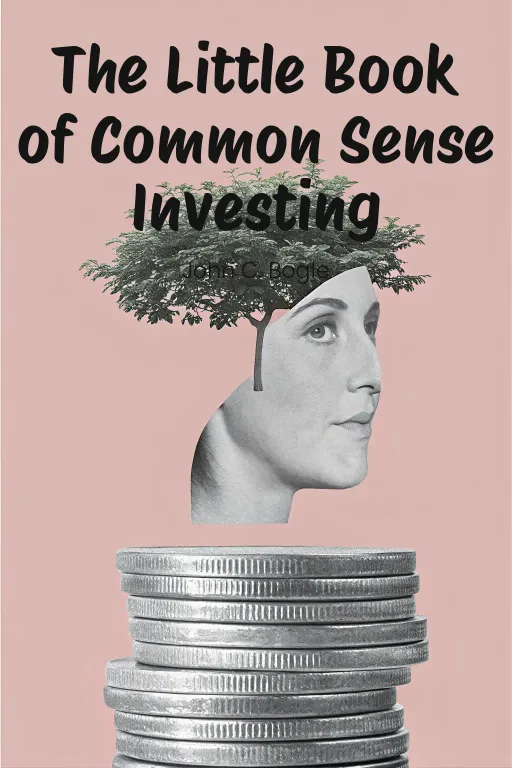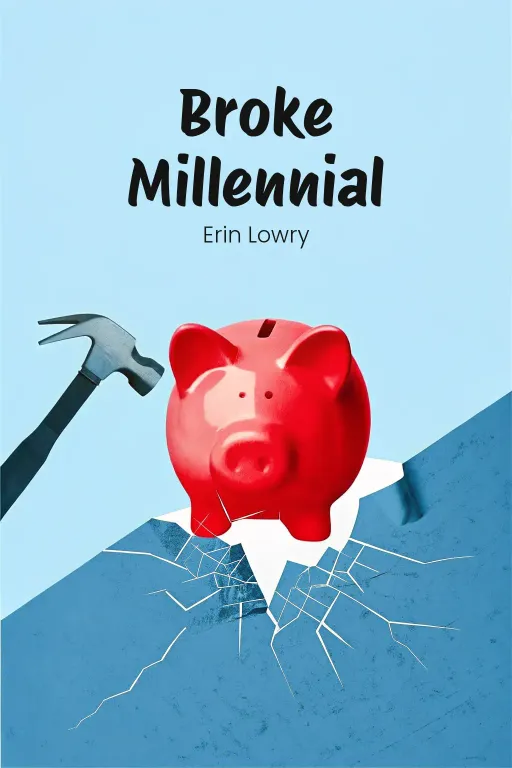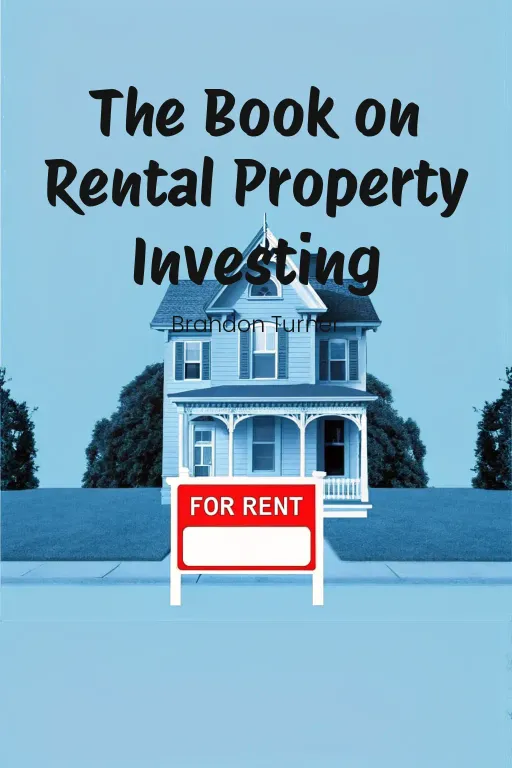
The Little Book of Common Sense Investing
Money & Investments
John C. Bogle
A Summary and In-Depth Analysis of John C. Bogle's "Common Sense Investing"
John C. Bogle's "Common Sense Investing" constitutes far more than a mere manual for financial well-being; it stands as a manifesto for a rational, ethically grounded approach to wealth accumulation. Bogle, the venerable founder of Vanguard, channels decades of market experience and a deep understanding of financial history into a compelling argument for low-cost index fund investing. His work transcends the typical investment advice genre by offering a critique of the financial industry's often-predatory practices and advocating for a democratized approach to capital appreciation. The book’s significance lies not merely in its advocacy for a specific investment strategy but in its profound understanding of human psychology and its unwavering commitment to protecting the interests of the individual investor against the prevailing currents of speculative frenzy.
Bogle's central thesis, elegantly formulated and rigorously supported, posits that investors can achieve superior net returns over time by eschewing active management in favor of passive index fund investing. This seemingly simple proposition is underpinned by a sophisticated analysis of market dynamics, cost structures, and behavioral biases that consistently undermine the performance of active managers and individual stock pickers. The book’s structure is meticulously crafted, progressing from foundational principles to practical implementation guidelines, thereby providing a comprehensive roadmap for investors of all experience levels.
The narrative is enriched by historical context and philosophical underpinnings, drawing inspiration from value investing luminaries like Benjamin Graham and underscoring the importance of long-term discipline and rational decision-making. Bogle does not merely present a set of investment techniques; he articulates a coherent worldview that prioritizes prudence, patience, and a deep understanding of the inherent limitations of human forecasting abilities. This is not simply a treatise on finance; it is a guide to cultivating a mindset conducive to long-term financial success.
The Parable of the Gotrocks: A Microcosm of Market Inefficiencies
Bogle masterfully employs the parable of the Gotrocks family to illustrate the core principles of his investment philosophy. The Gotrocks, initially a unified entity owning all publicly traded companies, embody the ideal state of diversified market exposure. However, the introduction of intermediaries—brokers, fund managers—results in the fragmentation of their wealth as exorbitant fees and transactional costs erode their collective returns. This narrative serves as a powerful allegory for the inefficiencies and value-extraction inherent in actively managed investment strategies.
Through the Gotrocks parable, Bogle exposes the fallacy of believing that trading amongst themselves, even with the aid of supposed experts, would increase their overall wealth. The parable effectively elucidates the concept that costs, in the form of commissions and management fees, are a zero-sum game: for every winner in the active management arena, there must be a loser, and both parties ultimately contribute to the enrichment of the financial industry. This simple yet profound insight lays bare the inherent conflict of interest that often exists between financial advisors and their clients.
The return of the Gotrocks to their original strategy—collective ownership and long-term holding—underscores the virtues of indexing, mirroring the performance of the entire market without the burden of excessive costs. The parable becomes a compelling indictment of the speculative impulse and a powerful affirmation of the long-term benefits of a buy-and-hold strategy rooted in diversification and frugality.
Reconciling "Rational Exuberance" with Business Fundamentals
Bogle navigates the complex interplay between market sentiment and underlying business performance, advocating for a rational approach to investment that tempers the volatility of short-term market fluctuations with a long-term focus on business fundamentals. He argues persuasively that the long-term trajectory of stock market returns is inextricably linked to the earnings growth and dividend payouts of the underlying businesses.
This perspective aligns with the principles of value investing, emphasizing the importance of assessing the intrinsic value of businesses and resisting the urge to chase speculative bubbles driven by irrational exuberance. Bogle acknowledges the inevitable cycles of boom and bust in the market but maintains that a diversified portfolio of index funds, held steadfastly over the long term, will ultimately capture the benefits of economic growth and corporate profitability.
Bogle's caution against market timing and emotional trading underscores the psychological dimension of investing. He recognizes that human emotions—fear, greed, and the herd mentality—can lead to irrational decisions that undermine long-term investment success. By advocating for index investing, Bogle promotes a strategy that minimizes the impact of these behavioral biases, encouraging investors to remain disciplined and focused on the ultimate goal of long-term wealth accumulation.
The Insidious Erosion of Returns: Unmasking the Impact of Costs and Taxes
A recurring theme throughout Bogle's work is the corrosive impact of costs and taxes on investment returns. He relentlessly emphasizes that even seemingly small fees and transactional costs can compound over time, significantly diminishing net returns. Bogle's meticulous analysis reveals that active management fees, trading costs, and tax liabilities often outweigh any potential gains from outperforming the market, resulting in inferior long-term results for the vast majority of investors.
The book provides a stark warning against the illusion of "gross returns," highlighting the importance of focusing on net returns after all expenses and taxes have been factored in. Bogle demonstrates that low-cost index funds, by virtue of their minimal trading activity and management fees, offer a significant advantage in terms of tax efficiency, allowing investors to retain a larger portion of their gains for reinvestment and future growth.
Bogle's emphasis on cost awareness transcends the realm of investment strategy; it is a broader call for financial literacy and consumer advocacy. He empowers investors to critically evaluate the fees and expenses associated with various investment products and to make informed decisions that align with their long-term financial goals. This focus on transparency and cost consciousness is a cornerstone of Bogle's commitment to democratizing wealth accumulation and protecting the interests of the individual investor.
Challenging the Allure of "Expert" Prediction: The Case Against Active Management
Bogle mounts a compelling critique of active management, presenting statistical evidence that consistently demonstrates the inability of most actively managed funds to outperform their benchmark indexes over the long term. He challenges the prevailing assumption that skilled fund managers can consistently generate superior returns through stock picking, market timing, or other discretionary strategies.
Bogle argues that the inherent inefficiencies of the market, coupled with the high costs associated with active management, make sustained outperformance exceedingly difficult, if not impossible, for the vast majority of fund managers. He highlights the phenomenon of "reversion to the mean," whereby high-performing funds eventually regress to average performance over time, undermining the assumption that past success is a reliable predictor of future results.
The critique of active management is not merely a statistical argument; it is a philosophical challenge to the hubris and overconfidence that often characterize the financial industry. Bogle encourages investors to recognize the limitations of their own forecasting abilities and to embrace the humility of acknowledging that no one can consistently predict the future direction of the market.
The Superiority of Passive Investing: A Synthesis of Prudence and Simplicity
The core strength of "Common Sense Investing" lies in its synthesis of prudence, simplicity, and empirical evidence into a coherent and compelling investment philosophy. Bogle makes a persuasive case for passive index fund investing as the optimal strategy for achieving long-term financial success, based on its inherent advantages in terms of diversification, cost efficiency, and tax efficiency.
The book does not shy away from acknowledging the psychological challenges of adhering to a long-term, passive investment strategy. Bogle recognizes the human tendency to chase short-term gains, to react emotionally to market fluctuations, and to fall prey to the allure of exciting investment opportunities. However, he argues that a disciplined, unemotional approach to investing, guided by the principles of indexing, can overcome these behavioral biases and lead to superior long-term results.
Bogle's advocacy for passive investing is not simply a matter of financial strategy; it is a broader call for a more rational and ethical approach to wealth accumulation. He envisions a world in which ordinary investors are empowered to take control of their financial futures, free from the predatory practices and false promises of the financial industry.
Enduring Relevance: Lessons that Transcend Market Cycles
The enduring relevance of "Common Sense Investing" lies in its timeless principles and its unwavering commitment to the interests of the individual investor. Bogle's message transcends the ever-changing landscape of financial markets, offering a consistent and reliable guide for navigating the complexities of wealth accumulation.
The book's focus on cost efficiency, diversification, and long-term discipline remains as relevant today as it was when it was first published, providing a powerful antidote to the speculative frenzy and short-term thinking that often dominate the financial industry. Bogle's call for greater transparency and investor empowerment continues to resonate in an era of increasing financial complexity and uncertainty.
Ultimately, "Common Sense Investing" offers far more than a set of investment techniques; it provides a framework for cultivating a rational, ethical, and sustainable approach to wealth accumulation. Bogle's legacy extends beyond the creation of Vanguard; it lies in his unwavering commitment to protecting the interests of the individual investor and promoting a more democratized and accessible financial system. His work stands as a testament to the enduring power of simplicity, prudence, and a deep understanding of human nature in the pursuit of long-term financial success. Bogle's work is not just a book; it is a clarion call for intellectual rigor and ethical responsibility in the world of finance.










